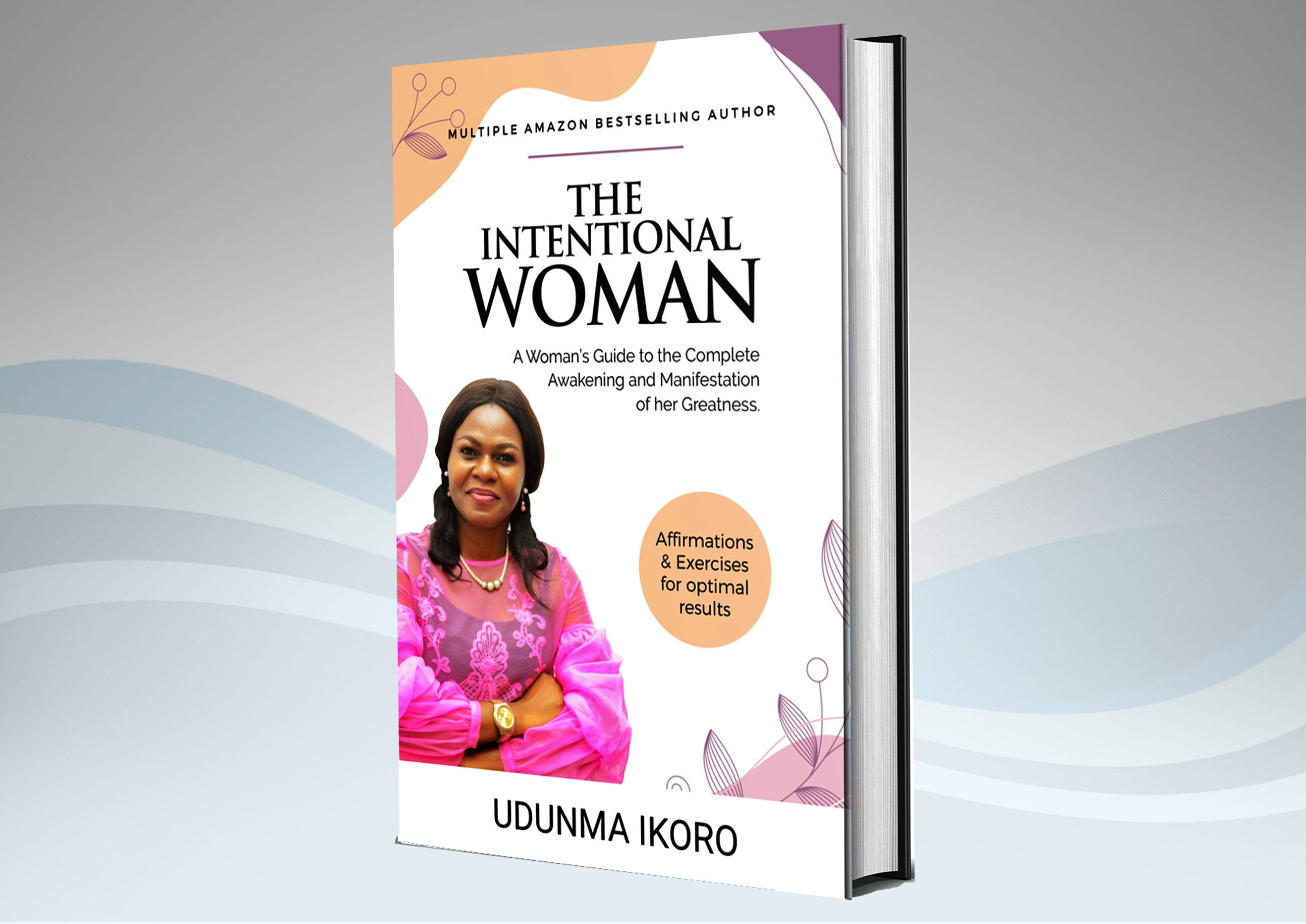Journal and Papers
New Book: “I No De Give Shi-Shi” …The Promise of a New Era

- JD Vance breaks polling records in the worst way - July 25, 2024
- Donald Trump’s Losing Election Poll for First Time in Over a Month - July 25, 2024
- FBI Is Not Fully Convinced Trump Was Struck by a Bullet - July 25, 2024
Education
New Book: “Buhari:Tinubu – How they snatched, shared power”

- Nigerian Political Buccaneers.
- Book Title: Buhari:Tinubu – How they snatched, shared power
- Author: Maazi Ochereome Nnanna
- Publishers: Inteksbooks Publishers
- Reviewer: Emeaba O. Emeaba
- Pages: 270
If you think the eagle is not a wizard, try grabbing a piece of wood with both your feet. Analogously, this rusty old saw reminds me how it is not easy being Maazi Ochereome Nnanna. Other than the lack of a bone stuck in his nose and his eyes not ringed in chalk, the man is a shaman. Nnanna, who has been chronicling history in a hurry for onwards of forty years, drew blood when he outs and asks in his book, Buhari-Tinubu: How they snatched, shared power: “Exactly what manner of president-elect did INEC Chairman, Prof. Mahmood Yakubu, present to Nigerians after the 2023 presidential election? An identity impostor? Certificate forger? Drug lord? Lagos State treasury looter? The deadly mafia political leader? The ethnic profiler and commander-in-chief of the Jagaban Army? Or, was it Tinubu, the fiscal gamechanger in Lagos State, the assembler of high-capacity men and women, the overcomer of rough weathers, the man who knows what he wants and how to get it? Or both at the same time?”
You better believe you are in for a heart-stopping surprise. Nnanna, an award-winning newspaper columnist who has anchored the People and Politics column in Vanguard Newspapers since 1994 where he delights in making waves—okay, maybe tsunamis—as he chronicles Nigeria’s political history, writes with that belligerent but perceptive viewpoint of a University of Nigeria Nsukka journalism product. Demonstrating his shamanistic wizardry, he has given us a many-sided portrayal of Buhari and Tinubu’s quest for the office of the president of the Federal Republic of Nigeria, and how the sleight of hand—the book’s subtitle is “How they snatched, shared power”—was perpetrated. It is a prodigiously researched account of the spread of whodunit. Dubbing the duo of Buhari and Tinubu as nothing but buccaneers, Nnanna takes us on a narrative guide to the planning and execution of the feat. Displaying his vast knowledge of current affairs, politics, and history, he uses Tinubu and Buhari as his leitmotif as he follows the duo; and through their stories, we see specific instances of the culture of Nigerian politics throughout the book.

Using a journalese that is extraordinarily smooth, and effortless, the book—an eleven-chapter tome of elaborate, but tightly packed prose—provides the reader with a uniform, and entertaining rendering of the rise of Tinubu from his Lagos fiefdom to his more potent incarnation—first as a money bag, then as a king maker, and finally as the kingmaker-turned-King. Steeped in research and analysis, the story is of Buhari and Tinubu as they slalom their ways to the front of Nigeria’s political history through 1990 to 2023. Nnanna holds you by the hand and gives you a Kafkaesque tour of this Made-in-Nigeria type politics and democracy. He delineates, in vivid figures, how only the muck of our society, adept in the use of meanness that is their stock in trade: institutional inducement of extreme poverty, and the use of instruments of state security for intimidation—are able to gain power.
Nnanna is very much able to do this arduous job that he sets for himself—the four-in-one job of the accuser, the mediator, the executioner, and the undertaker. The good thing is, he is a perceptive and subtle critic who has hobnobbed with the very perps at the end of his rapier, in every corner of the Nigerian political business.
Nnanna’s interpretation of the progression of the Buhari-Tinubu odyssey is deucedly clever, intriguing, exceptionally revelatory and overwhelmingly lethal. In this enthralling, readable work, the author examines with unloving care, the crudely successive vocations of the two, each of whom attained imperial heights without the necessary certifications (and where there is one, definitely an Oluwole-type!) Meticulously researched and clearly spelled out, the narrative is eloquent of Nnanna’s writing capabilities. He writes in such a lucid, astute text that unpacks the myths of Nigerian politics to help explain present-day motivations and actions. It is tense, twisty and so incantatory and primeval that I don’t think I’ll ever forget it any time soon.
As a precursor to his rapid-fire presentation of the Buhari-Tinubu bubuyaya, he first describes them in their excellencies, warts and all. Tinubu is the political evil genius who, racked by a debilitatingly irksome malaise that sometimes transmogrifies some of his speeches into gobbledygook, is still able to concoct the potent brew that results in his being in Aso Rock. Buhari is the very metonymy for geriatric languor who basks in issuing commands, reading prepared speeches and doing nothing else. Where Tinubu lives ahead of his time, painstakingly plotting, skillfully engaging the right stakeholders, parrying blows along the way, and plain displaying political sorcery, Buhari is an archetypal zany who wears nepotism as a badge of honour and ends up picking up the first prize for the most clueless leader, ever.
Each chapter explores a specific aspect of the quest for finding a successor for President Muhammadu Buhari. The author reminds us that the APC was not alone in the project; emphasizing that three other characters form the dramatis personae of the comedy of errors. Nnanna tells us about Alhaji Atiku Abubakar (PDP), Mr. Peter Obi (LP) and Dr Rabiu Kwankwaso (NNPP), and then provides historical context and many examples of their entries and exeunt, including when democratic principles are undermined or ignored.
For such a sweeping, often chaotic, and prickly subject, the author maintains a succinct, unswervingly revealing narrative that explicates key terms and hypothetical contexts in a way that should engross an eclectic audience.
This ambitious book tackles major Nigerian questions, and answers them in a unique, enthralling and reportorial method. “This is the first ever book about the political history and power play in Nigeria in the past 33 years with particular reference to Muhammadu Buhari and Ahmed Bola Tinubu as the leading characters who dragged Nigeria down to the status of state failure;” Nnanna gushes as he analyzes the underhanded schemes, the well-calculated machinations, the broad-daylight duplicities, the sadism, the state-sanctioned killings, the skullduggery of state institutions, the dissembling, the wickedly rancorous propaganda, the extreme favoritism, nonstop invasions of the country’s collective purse and the bungling maladministration visited on Nigeria and its unfortunate citizens by these power hucksters, and their partners. Nnanna is a skillful guide, taking you through the daunting convolutions that is the Nigerian politics that produced these conflicts.
Poisonously decent, and with surprises right up until the final parts, Nnanna is unrelenting, pointing out that the duo was the first major political partnership to form a party—the All-Progressives Congress (APC)—plotted, and successfully defeated an incumbent political party, the People’s Democratic Party (PDP) with Dr Goodluck Jonathan as the president in 2015.
As you read this gripping book, you get the sense that with Nnanna’s considerable literary firepower, he could very well have written about any subject if he had wanted to. A quintessential newsman, Nnanna is blessed with razor-sharp journalistic instincts, hereditary cynicism, and a truck-load propensity for ferreting out information and presenting same in its gore and glory. For example, he accedes that the feat of unseating an incumbent government had never happened before in the history of Nigerian politics. This, he said, is because, when a political party has produced leaders for more than two consecutive maximum terms of office, corruption would have taken over where one “godfather” or a gang of them would have hijacked power, such that no one else could come near.
Here, Buhari had taken the first shot as president for eight years, and then handed it to Tinubu on the 29th May 2023 through a contentious election blatantly compromised by the Independent National Electoral Commission (INEC) led by Prof. Mahmood Yakubu. Nnanna argues, “a system that was bold enough to rape the electoral process in broad daylight and announce an abortion of a result in the dead of the night while people slept, showed how determined the state was to give power to a preconceived winner.”
Nnanna laments “After winning three presidential elections (2015, 2019 and 2023) it is up to the readers and, in fact, all Nigerians to decide for themselves whether the Buhari/Tinubu phenomenon in Nigerian politics was nice to their body, their pocket, or their life.” Rhetoric, in his sarcasm, he asks, “If you knew what you now know, would you have done the same thing you did back in 2015?” That sounds like a jeremiad—a listing of woes which seems to me a wistful shifting of responsibilities. He offers no solution to what ails the political system. Then again, Nnanna is a journalist—journalists have never been in the fixing business. However, the joy of his book is in both the knowing adumbration of who and what brought Nigeria to this sorry pass, and the strong emotion that endows his accusation with its charge and edge. The book concludes that Bola Tinubu has successfully knocked everyone aside (including former President Buhari) to get what he wanted; and now, fully in charge of all the instruments of state, including the Judiciary; it is a given his inauguration on May 29, 2023 has essentially trivialized the Tribunal’s business to a mere academic exercise (…knock on wood!)
While the rest of us uncommitted may stand askance and wonder what is Nnanna’s problem, those other angst-imbued victims of the concert, will splurge on the never-ending plethora of piquant disclosures, new perceptions, and impudent sentiments he serves up. Students of political history and the rest of us would have a problem putting the book down.
A copy of this book is available on Amazon.com, or directly from the author himself: ocheromen@gmail.com.
Dr. Emeaba, the author of A Dictionary of Literature, writes Dime novels.
- JD Vance breaks polling records in the worst way - July 25, 2024
- Donald Trump’s Losing Election Poll for First Time in Over a Month - July 25, 2024
- FBI Is Not Fully Convinced Trump Was Struck by a Bullet - July 25, 2024
Education
New Book: “Women Unbound”

Book Title: Women Unbound
Author: Udunma Ikoro
Publishers: Communique Resource Hub.
Pages: 221
Reviewer: Emeaba Onuma Emeaba
Time there was when women were stampeded into remaining anonymous in plain sight. Somehow, the women chewed the inside of their lower lips, remained quiet, suppressed their emotions, and pretended not to exist. Everyone, including the chauvinistic cadre that concocted that faux-pas became the worse for it. Acceptance of that incongruity engendered unnecessary misunderstandings that resulted not only in the stifling of serious potentials, but also in the bringing about of nightmarish endings and unfulfilled promises for the significant other. Up front, society lost the most capable, competent, and reliable co-worker; and everyone suffered, Udunma Ikoro seems to say in, “a woman is a natural influencer born with the capacity to lead and impact anyone and everything.”
The Intentional Woman by Ikoro—who brings to her subject a writer’s tenacity and a teacher’s propensity for moulding a classroom full of wide-eyed children into shape—is a generous, unsettling, and somewhat visionary work that resembles that of Dale Carnegie: a series of mini-lessons on the virtues encapsulated in the iconic “‘I can’ is the parent of ‘I did.’”
Ikoro, not only makes the book resound with instructional savoir-faire, but she also has assembled a large corpus of real-life anecdotes to back up her assertions. And, serving as a de-facto manifesto for women in general, (and men, if you want to know the truth), the word “book” does not sound right to describe it. The insight she has to offer in this excellent motivational book takes full advantage of the opportunities that Ikoro presents to the reader when she resorts to the use of the been-there-done-that class of people—some of them unnerving and disconcerting—who have had it rough but are able to forcefully, positively bounce back, in many respects.
Motivational authorities have talked themselves hoarse drumming it into us that we should overcome limiting factors against our upward mobility; to fight to bring our potentials to the fore. Sadly, that truism seems to be simply meant for the men, excluding the women in our society. The rest of us, inadvertently inveigled by generational gaffes, have buoyed the anomaly because it was so reassuringly convenient; and life goes on. Not anymore, says Udunma Ikoro, who has swung into guru territory, too. Becoming the latest in the ranks of motivational pundits like Oprah Winfrey, Tony Robbins and the good old Dale Carnegie, she has argued that the woman should not only think outside the box, but must also climb out of the box, in order to be able to do what she is created to do: be the best partner she is meant to be.
Pleasant, poised, empathetic, but this intricate book which resembles a medicinal concoction for what ails the woman of today, works on many other levels. She seems to observe her atmospheres’ world in a series of distinct, almost palpable imageries. It is suffused with a medley of literary language—from the past, from the bible, from glib anecdotes, through motivational patter, brief biographies, and on to first-person reflections.
In The Intentional Woman, Ikoro tells us, rather compellingly, that we may have measured accomplishments using different considerations and criteria, but that such success can only happen if certain of our women, some of whom are brilliance personified, bring to bear a willingness to discover those core latent talents simmering inside them. The book, which is dedicated to “every girl child, lady, woman who has desire to be more” maintains that we set aside our fears and take a leap of faith even if we have to defy certain “taboos” that tend to stultify our ability to go forth and conquer.
Ikoro argues that “In the journey of life, you must attain self-discovery; ascertain values in order to have a clearer view of your purpose in life.” She offers a truck-load of riff on the things to do that she believes stand ready to nudge anyone who dares, along. She is at her most persuasive on the narrower motivational spiels like “In building your mind-set, stop the fear in you,” and has dwelt, untiringly on definite themes, for example, “to be intentional is about being deliberate, working towards a purpose, being thoughtful in your choices or being proactive.”
Using real life (her life) scenarios, the book takes us through the necessary steps needed for women (and the rest of us) to unbridle our latent talents. She says we should unveil ourselves by discovering who we are; find our gifts to reveal our talents; forget whatever anyone says to the contrary of who we are; throw in some education that is at par with our self-development; and go out there to kick behinds as we claw ourselves up to a cloud nine position; which we deserve.
This book is packed. The writer Udunma Ikoro, currently the lead creative director, Communique Resource Hub, and Professional Communication Educational and Book Project Consultant, proposes we assume intentionality and not think of it as a “cliché,” but as “being purposeful in life, actions and words.” She tells appealing episodic stories, which serve to lucidly clarify multifaceted biblical allusions and anecdotes as they relate to the topic, and presents surprising perceptions into the nature of extraordinary performance: noting, for example, that profound successes are often driven by a spell of let-down and the encountering of hurdles along the way.
In eleven segments—instead of chapters—of elaborate prose, Ikoro takes an entirely different tactic to make her point. She insists that “…nobody owes me anything, nobody owes me my joy, my space, fulfilment, and anything.” Then backs that up, when she adds, “I owe myself my greatness.” In the process, she manages to write the book in such a way that it is difficult to be turned into a bouillon cube made of many ingredients. This is a tricky trapeze walk, but she is able to pull it off by weaving a motivational narrative that points to one thing: Women; go out there and get it—full stop.
Geared towards counselling, teaching, and straight up cautioning, this is a profoundly thought-provoking and significant book because Ikoro—the youngest motivational authority of our time—has performed a mystical showmanship on paper such that you could almost scratch-n-sniff the motivational frankness that is its strength. One leaves this book impressed with the way in which the author manages to haul examples and facts at the reader insisting they take the one step that would change their current ruts. The book is bound to entertain, even as it touches those hitherto untouchable topics that women are so pre-programmed to shy away from. Every girl child (nay, everybody) should read this book.
To obtain copies, email the author directly: udunmaikoro@gmail.com.
Emeaba, the author of “A Dictionary of Literature,” writes dime novels a la Onitsha Market Literature sub-genre.
- JD Vance breaks polling records in the worst way - July 25, 2024
- Donald Trump’s Losing Election Poll for First Time in Over a Month - July 25, 2024
- FBI Is Not Fully Convinced Trump Was Struck by a Bullet - July 25, 2024
Journal and Papers
Nigeria Police Grants Bail to Journalist

The founder of Foundation for Investigative Journalism (FIJ), Mr. Fisayo Soyombo, has been released on bail by the Nigeria Police Force (NPF).
Soyombo was freed yesterday evening after he spent several hours at the Force Headquarters, Abuja
He had gone to the Force Headquarters to honour a police invitation in connection with a story on the deputy inspector-general of police (IGP), Joseph Egbunike.
The journalist confirmed his release when he said: “I am out.”
He will, however, return to the Force Headquarters on January 13, 2022.
“Special thanks to my colleagues at FIJ Nigeria, lawyers, ex-bosses, the media houses who published stories, and everyone who tweeted, ‘Facebooked’, texted and made phone calls to press for my release from detention. I am out.
“Journalists, activists, lawyers, and everyone else working in the public interest should not have to deal with a distraction like this, but none of us must give up on the Nigerian dream,” he said.
- JD Vance breaks polling records in the worst way - July 25, 2024
- Donald Trump’s Losing Election Poll for First Time in Over a Month - July 25, 2024
- FBI Is Not Fully Convinced Trump Was Struck by a Bullet - July 25, 2024
-

 Anthony Obi Ogbo2 days ago
Anthony Obi Ogbo2 days agoSylvester Turner Should Cancel His Bid for Late Jackson Lee’s Congressional Seat
-

 Anthony Obi Ogbo1 week ago
Anthony Obi Ogbo1 week agoWas Trump’s Assassin unstoppable because he was White?
-

 Column2 days ago
Column2 days agoAdvocating for Reviving the 1960s Constitution Toward Creating a United Region of Nigeria
-

 News2 weeks ago
News2 weeks agoOMG: Donald Trump Shooter Was a Registered Republican
-

 Lifestyle2 weeks ago
Lifestyle2 weeks agoEddie Murphy and Paige Butcher Are Married! Inside Their Private Caribbean Wedding
-

 News2 weeks ago
News2 weeks agoDonald Trump survives assassination attempt; FBI identifies shooter
-

 Houston2 weeks ago
Houston2 weeks agoHurricane Beryl: Wazobia postpones family fanfare slated for this weekend
-

 Lifestyle2 weeks ago
Lifestyle2 weeks agoYale honors a young Black scientist after a neighbor falsely reported the 9-year-old to the police




















